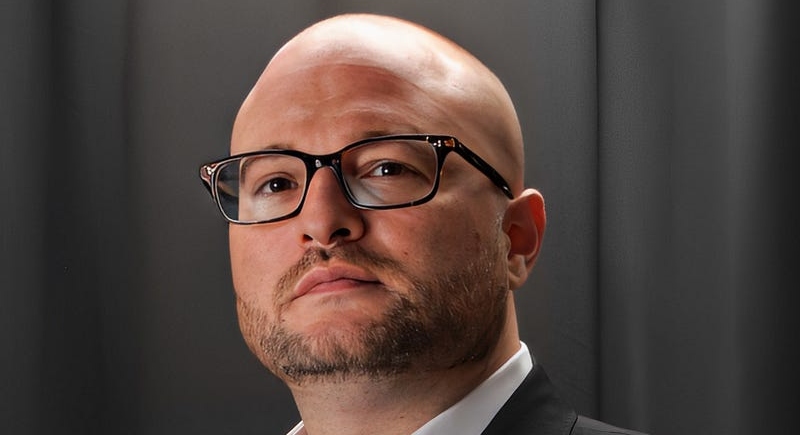Be sure to listen. The best coaches aren’t prophets; they also listen to the person or people they are coaching. By listening, coaches can adjust and hone their coaching to best fit their audience, yielding the best results.
The number one leadership initiative in any organization today is improved coaching. Coaching empowers employees, empowerment drives engagement, and engagement drives performance. At its core, coaching is about transformation. Leading distributed teams requires transforming how we coach and changing our play calls and playbooks to get things done. As a part of our interview series called “Moving From Command & Control to Coaching & Collaboration; How Leaders and Managers Can Become Better Coaches,” we had the pleasure to interview Jared Weitz.
Jared Weitz has been in the financial services industry for over 15 years. Due to his extensive work experience and a deep network of close relationships, he handles many different finance options for his clients and contacts.
Over the years, he has held positions in some of the largest business financing companies in the U.S. Some of his roles have been: Underwriter, Director of Business Development, Managing Partner, and currently, CEO of United Capital Source Inc.
Jared’s specialties include leasing, equipment financing, small-to-mid-sized business financing, large-cap finance, merchant services, mortgages (commercial and residential), underwriting, contract negotiation, and financial analysis and projection.
Jared is a member of the Forbes Finance Council, Young Entrepreneur Council, NACLB & Small Business Finance Association.
Thank you for joining us to explore a critical inflection point in how we define leadership. Our readers would like to get to know you better. What was a defining moment that shaped who you are as a leader?
Growing up, I was convinced that I wanted to become a teacher. I love helping others and taking on a leadership role, so I figured that becoming a teacher was a great fit. After exploring a teacher’s career path, however, I realized that I’d never be able to earn as much money as I’d like to and forge my own path. Pursuing a different path from teaching was a defining moment for me. At that moment, I realized that I could still approach owning my own business the way I would approach teaching. I can still lead from the front, teach selflessly, and guide others while at the same time building a lucrative business.
John C. Maxwell is credited with saying, “A leader is someone who knows the way, goes the way, and shows the way.” How do you embody that quote as a leader?
As a leader, my decisions are what guide our company and team in the right direction. I’m in charge of knowing what to do, but more importantly, getting in the trenches with my team and guiding them along with me. I firmly believe in not expecting my team to do anything I wouldn’t do, so I aim to be hands-on in my leadership. Historically, the most outstanding leaders have been in the trenches with their battalions.
How do you define the differences between a leader as a manager and a leader as a coach?
A leader as a manager is someone who focuses on the day-to-day tasks and ensures that their team is delivering on goals. A leader as a coach inspires their team, picks them up when they are down, and motivates them to perform to the best of their ability.
We started our conversation by noting that improved coaching is the number one leadership initiative in any organization today. What are some essential skills and competencies that leaders must have now to be better coaches?
Emotional intelligence is a massively vital competency to possess to be a good coach. The most effective coaches understand that not everyone learns and receives feedback the same way, so having the emotional intelligence to best coach team members is paramount.
Another skill that a good coach must possess is effective communication. Leading and coaching require a solid ability to communicate with a wide variety of people in different situations. By being adaptable and effective communicators, leaders can become better coaches.
We’re all familiar with the adage, “You catch more flies with honey than with vinegar.” How are you inspiring — rather than mandating — leaders to invest in upskilling and reskilling?
Most times, employees will gladly take on opportunities to reskill or upskill when they are presented with a chance to advance their knowledge and career. As a leader, you should want the best for your employees. By providing employees with opportunities to advance, they will help your company advance in return. When talking to other leaders about implementing upskilling and reskilling programs, I always stress that upskilling and reskilling are a worthy investment that ultimately pays dividends back to the company.

Let’s get more specific. How do you coach someone to do their best work? How can leaders coach for peak performance in our current context? What are your “Top 5 Ways That Leaders and Managers Can Be Effective Coaches?”
The most important part of helping someone do their best work is identifying what is stopping them from doing it right now. Whether it’s a real or perceived obstacle, coaches need to help clear the path to peak performance.
My top 5 ways that leaders and managers can be effective coaches are as follows:
#1. Be sure to listen. The best coaches aren’t prophets; they also listen to the person or people they are coaching. By listening, coaches can adjust and hone their coaching to best fit their audience, yielding the best results.
#2. Be open to feedback. Rome wasn’t built in a day, and neither was the perfect coach. Developing coaching and leadership skills is a process fueled by receiving valuable feedback and acting upon it.
#3. Construct goals. When coaching someone, it’s important to set goals for the person you’re coaching to know that your coaching is helping them. Setting goals also encourages the person you’re coaching to stay on the right track.
#4. Build relationships. People are much more receptive to coaching when they have a relationship with their coach. By building a relationship on support, communication, and helpfulness, you’re guaranteed to have a better coaching experience.
#5. Be a cheerleader. To be a good coach, you must celebrate wins just as much as you give advice and feedback. By rewarding wins, you can encourage more positive outcomes from coaching.
We’re leading and coaching in increasingly diverse organizations. And one aspect of workforce diversity on the rise is generational diversity. What advice would you offer about how to effectively coach a multi-generational workforce? And how do you activate the collective potential of a multi-generational workforce?
Empathy is the key to effectively coaching a multi-generational workforce. People will have various experiences, competencies, and viewpoints in a diverse workplace. As such, it’s critical to approach all situations, especially when coaching, with empathy and understanding. Thankfully, diverse workplaces create a marketplace of unique ideas. As a leader and coach, encouraging brainstorming sessions and open discussions between team members is massively helpful in activating the collective potential of a multi-generational workforce.
You’re referring to emotional intelligence, in a sense. What are two steps every leader can take to demonstrate a higher level of emotional intelligence?
Being proactive instead of reactive when coaching is a crucial indicator of emotional intelligence in leaders. Instead of reacting to challenging situations involving personnel, anticipating potential downsides and mitigating adverse effects ahead of time is paramount. Additionally, trying to understand situations instead of projecting preconceived notions about them is another sign of emotional intelligence in leaders.
Words matter. And we’re collectively creating a new leadership language right now. What are the most important words for leaders to use now?
A few essential words that leaders can use right now include progress, solution, and strategy.
Progress is vital to stress because we may not always accomplish our goals in a day, but we will make progress toward them, and that is what truly matters as a leader. Solution is an important word because problem-solving is one of the core components of succeeding in any role or business. Lastly, strategy is a crucial word to stress because looking at problems, goals, and tasks through a strategic lens is also helpful in many contexts.
I keep inspiring quotes on my desk. What’s your favorite “Life Lesson Quote,” and why does it mean so much to you?
“Yesterday is not ours to recover, but tomorrow is ours to win or lose.”- Lyndon B. Johnson
I strongly identify with this quote because in business and in life, you cannot hold on to the past if you hope to progress. We have no control over what has already passed by, but we have full control over the future. By letting the past go and setting your sights on the future, which is still within your control, you can build a better future for yourself and others.
Our readers often like to continue the conversation. What’s the best way for readers to connect with you and to stay current on what you’re discovering?
We are always posting new blogs on our website, www.unitedcapitalsource.com. You can also connect with me directly on LinkedIn at linkedin.com/in/jared-weitz/.
Thank you for a meaningful conversation. We wish you continued success with your mission.


